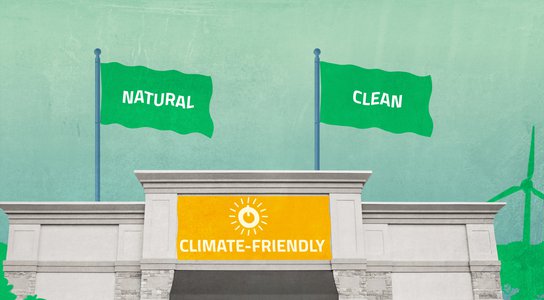Climate-driven wildfires, flooding, droughts and other extreme weather events daily impact every corner of the globe.
Yet the fossil fuel industry, big utilities, big agriculture, big finance — and their political allies — are pushing carbon offset schemes to allow them to continue releasing the greenhouse gases driving the climate crisis, harming Indigenous, Black, and other already-marginalized communities, and undermining sustainable farming and forestry practices.
The science is clear: we need to rapidly phase out fossil fuels and emissions-intensive agricultural practices like factory farming, while protecting forests, wetlands, and other natural carbon sinks. Every delay means greater impacts on our climate and more pollution in historically overburdened communities.
We call on leaders around the world to join us in rejecting offset schemes because these pay-to-pollute practices are nothing more than false and harmful solutions to the climate crisis.
- Nature-based offsets cannot “offset” fossil fuel combustion. While fossil fuel companies and other polluters would like fossil carbon and biological carbon to be fully interchangeable, this has no scientific basis. Fossil carbon emissions are effectively permanent, coming from reservoirs deep in the earth where they have been stored for millions of years. When burned, the carbon pollution remains in the atmosphere for hundreds to thousands of years. In contrast, crops, soils, oceans, and forests are “fast-exchange” carbon reservoirs that have limited carbon storage capacity and can re-release carbon back into the atmosphere over the course of a few decades, or sometimes even over a few days. Offsets confuse this basic science by wrongly treating the Earth’s biosphere as an endless source of potential storage for fossil carbon emissions.
- Offsets of any kind perpetuate environmental injustice. Greenhouse gas emitting industries are disproportionately sited in poor communities and communities of color, causing them to bear the brunt of pollution. Offset schemes increase pollution in these communities, worsening environmental injustice. Furthermore, by allowing pollution to continue in exchange for land grabs elsewhere, offsets often shift the burden of reducing emissions from the Global North to the Global South.
- The use of offsets is likely to increase greenhouse gas emissions. Polluters frequently purchase offsets for emissions-reducing practices by one entity, so that their own emissions can continue. In this case, emissions are still added to the atmosphere, so global warming continues. Polluters also purchase offsets for practices that could pull carbon out of the atmosphere, such as by planting forests or protecting existing forests. However, carbon storage in natural ecosystems is inherently temporary and highly reversible, as has been seen so clearly in the tragic forest fires in the U.S. west in the past few years. All that carbon can be released very quickly back into the atmosphere, again increasing emissions.
- Offsets can result in violations of the rights of Indigenous and tribal peoples. Satisfying market demands for offsets will require access to huge expanses of land and forest, lands already occupied by Indigenous Peoples, peasants, and local communities. As such, Indigenous lands are increasingly targeted by forest offset project developers, creating pressure and division in Indigenous communities.
- Offsets undermine sustainable farming and increase consolidation in agriculture. Carbon offset programs give additional leverage to already powerful corporations, including agribusinesses and factory farms, that have long squeezed farm income and drained rural economies, while increasing environmental pollution. Corporations and large landowners are best-positioned to develop offset projects, which further entrenches the factory farm and corn/soybean monocultural model at the expense of small farmers, including Black and Indigenous farmers and Tribal Nations. Instead of allowing the industrial, extractive model of agriculture to further prosper by selling offsets to industrial polluters, policy makers should support traditional and ecologically regenerative agricultural practices.
- Offsets markets create more conditions for fraud and gambling than for climate action. Existing offset schemes have already proven to be easily open to fraud. Yet the speculative trading of offsets derivatives and other financial products has already begun, prioritizing profit-seeking traders and speculators over economic and climate justice.
We call on global policy makers to reject offset schemes and embrace real climate solutions that will keep fossil fuels in the ground, support sustainable food systems, and end deforestation, while eliminating pollution in frontline communities.


![VCMIsimple4[60].png](https://cdn2.globalwitness.org/media/images/VCMIsimple460.2e16d0ba.fill-544x300.png)